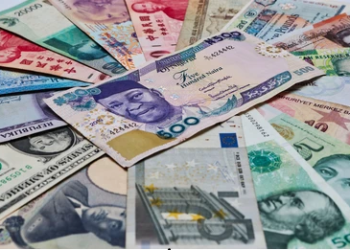In a surprising move impacting Nigeria’s cryptocurrency landscape, the Nigerian Communications Commission (NCC) has issued a directive to telecommunications firms instructing them to block access to the websites of major cryptocurrency platforms, including Binance.
A credible source within the telecoms industry, speaking anonymously, confirmed the directive received by telecommunication companies from the NCC.
This development comes amidst growing concerns over the hike in the foreign exchange (FX) rate, which has been a persistent challenge for the Nigerian economy. The government’s decision to block access to cryptocurrency websites is seen as a response to mitigate the impact of foreign currency outflows associated with cryptocurrency transactions.
The FX rate hike has been attributed to various factors, including dwindling foreign reserves, declining oil revenues, and increased demand for foreign currency. These challenges have put significant pressure on the Nigerian currency, leading to a depreciation of the Naira against major international currencies.
Cryptocurrency transactions, which are often conducted in foreign currencies such as the US Dollar, Euro, or Bitcoin, have been identified as contributing to the FX rate hike. The government’s move to restrict access to cryptocurrency websites is aimed at curbing capital flight and stabilizing the FX market.
The decision by the NCC underscores the government’s efforts to tighten control over cryptocurrency transactions and platforms, citing concerns related to regulatory compliance, financial stability, and security.
Binance, one of the world’s largest cryptocurrency exchanges, has gained popularity among Nigerian users as a platform for trading various digital assets. However, with the NCC’s directive, access to Binance’s website and other cryptocurrency platforms is expected to be restricted for Nigerian users.
The NCC’s directive is likely to have significant implications for cryptocurrency investors, traders, and enthusiasts in Nigeria, potentially disrupting their ability to engage in trading activities and access vital information on digital assets.
While the specific rationale behind the NCC’s directive has not been officially disclosed, it aligns with the broader regulatory crackdown on cryptocurrencies witnessed in various jurisdictions worldwide.
Cryptocurrency regulations in Nigeria have been subject to frequent changes and uncertainties, with the government expressing concerns over the potential risks associated with digital assets, including money laundering, terrorism financing, and consumer protection.
As the NCC’s directive takes effect, stakeholders in the cryptocurrency ecosystem in Nigeria are closely monitoring developments and assessing the implications for the industry’s future in the country.
BusinessDay reached out to the Nigerian Communications Commission for official comments on the directive, but no response has been received as of the time of publication.
More details later……










